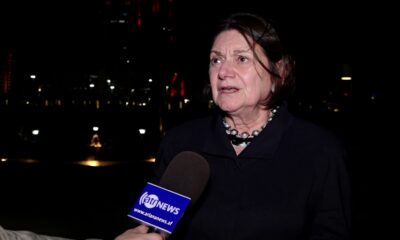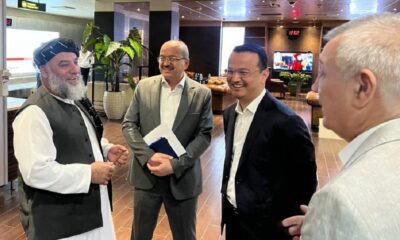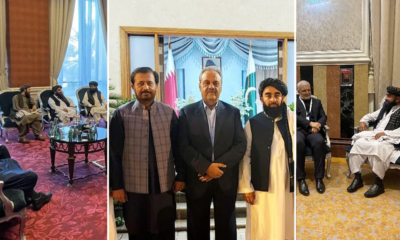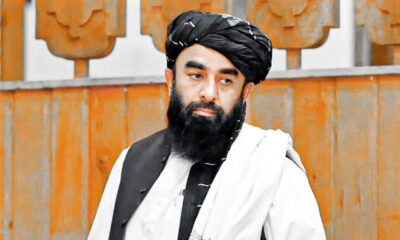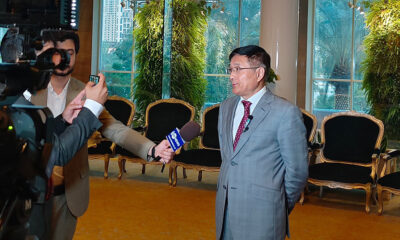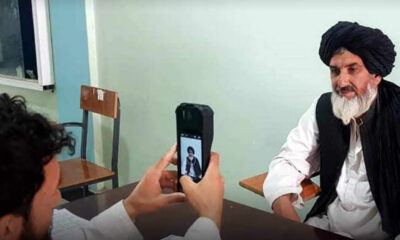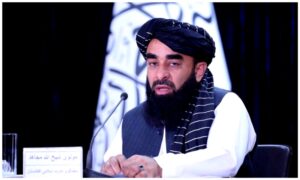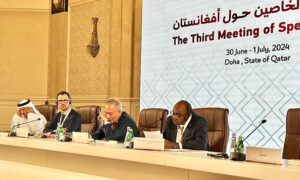Latest News
Pakistan’s defense minister says TTP hideouts in Afghanistan can be targeted
He also dismissed the possibility of negotiations with TTP.
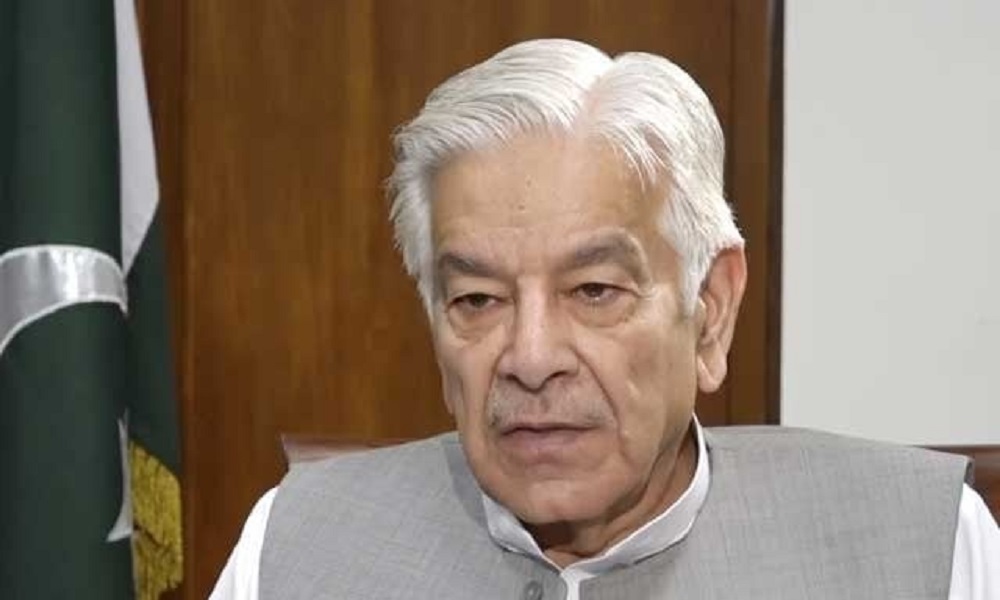
Pakistan’s Defense Minister Khawaja Asif said on Thursday that under Operation Azm-e-Istehkam, the government could target Tehreek-e-Taliban Pakistan (TTP) hideouts across the border in Afghanistan.
“If the need arises, there is nothing more important than Pakistan’s sovereignty,” Asif told VOA when asked whether Pakistan would consider cross-border attacks to control perpetrators.
Addressing the legality of potential cross-border attacks, Asif argued that Pakistan must prioritise its own interests. “It is also a violation of international norms when Afghan soil is used to export terrorism, with those responsible receiving protection and safe havens by the people there,” he added.
He also dismissed the possibility of negotiations with TTP.
“There is no chance of a dialogue with them. What do we talk about, we need to have a common ground to speak to them,” Asif said.
He questioned the success of the Imran Khan government’s reintegration of 4,000 to 5,000 TTP militants, asking, “If that experiment was successful, let us know so we can follow suit.”
Relations between Pakistan and Afghanistan have soured in recent months. Islamabad says Kabul is not doing enough to tackle militant groups targeting Pakistan.
The Islamic Emirate of Afghanistan (IEA) rejects Islamabad’s allegations, saying Afghanistan is not responsible for the “security failure” of Pakistan.
IEA slams Pakistani defense minister’s ‘careless’ comments on cross-border operation
Following the statements of the Pakistani Defense Minister about the possibility of attacks on TTP hideouts in Afghanistan, the Ministry of Defense on Friday slammed the remarks as “careless” which will not benefit any side.
The Ministry of Defense said in a statement that the Pakistani defense minister’s remarks were an attempt to “muddy the waters”, calling on the Pakistani leadership to not allow anyone make such “sensitive” statements.
The Ministry of Defense warned that anyone who violates Afghanistan’s sovereignty under any pretext will bear the consequences.
The ministry emphasized that IEA will not allow Afghanistan’s soil to be used against any other country.
Related stories:
Pakistan’s Ishaq Dar says peaceful, stable Afghanistan will benefit both countries

Pakistani PM approves re-invigorated national counter-terrorism campaign

Latest News
UN’s DiCarlo says trust and honesty needed by all parties for Afghanistan to move forward
“Human rights and especially the rights of women and girls , and inclusion of all members of society will continue to be an integral part of our discussions,” DiCarlo said.
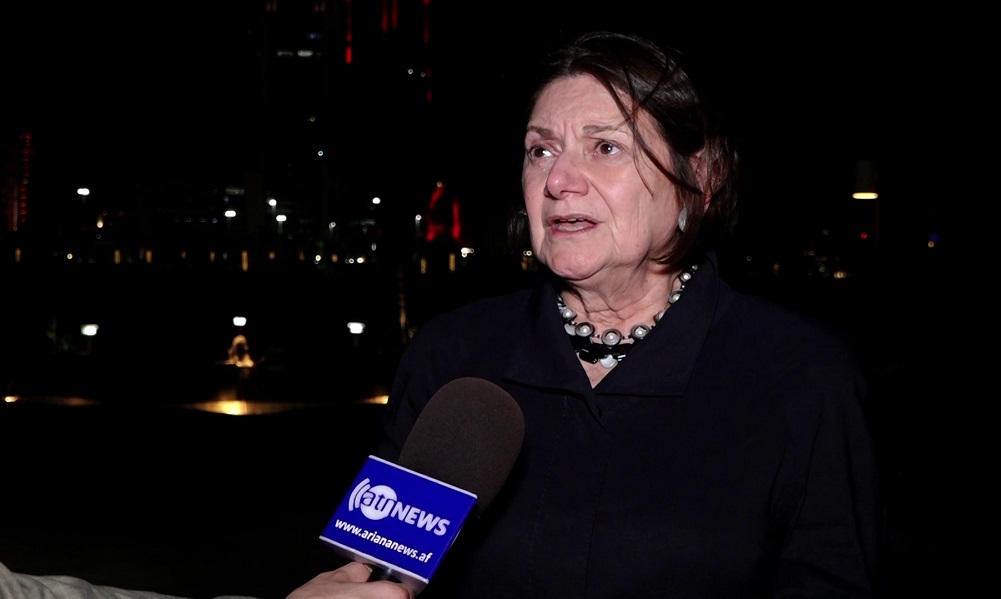
UN Under-Secretary-General for Political and Peacebuilding Affairs Rosemary DiCarlo said on Tuesday after meeting with members of Afghanistan’s civil society that there “really is a need to build trust on all sides”.
Addressing a press conference after her meeting, she said it was important to have dialogue “that’s built on honesty”.
“It’s got to be based on principles, those of the UN Charter, and various human rights treaties that Afghanistan is a party to.”
She said: “We are still at the beginning of this process.”
According to her there was a need for everyone to be patient and realistic.
“It’s a process based on the independent that the UN Security Council recognized last November; the assessment calls for a more coordinated and structured process, with clear conditions and expectations from all sides.
“It also calls for a principled, step-for-step approach with a clear understanding of the outcomes and commitments from all sides.
“Human rights and especially the rights of women and girls , and inclusion of all members of society will continue to be an integral part of our discussions.”
In terms of moving forward, DiCarlo said there had been a discussion in Monday’s meeting with special envoys and the Islamic Emirate on the possibility of establishing smaller working groups to discuss key issues.
“We are continuing that discussion on how to proceed forward,” she said.
Once again she reiterated that this process was in its early stages and would need time and patience.
“Really, our approach has one goal. And that’s helping all the people of Afghanistan.”
DiCarlo’s meeting with civil society representatives not part of the official agenda. Contrary to earlier reports that no envoys from foreign countries had attended this meeting, DiCarlo said there “had been a fair number of member states” at the meeting.
She pointed out attendance had been “optional”.
Asked whether civil society representatives were upset at having been sidelined from the 3rd Doha meeting she said: “Obviously, civil society, many would have like to be at the meeting but they were pleased to have the opportunity to speak with some of the envoys.”
DiCarlo was also asked why such the two-day meeting and the meeting with Afghan civil society representatives had been so shrouded in secrecy; and why the identities of the civil society members were being withheld.
In answer, she put it down to the UN “respecting the privacy” of individuals and that UN meetings are closed events.
She did however say the international community does feel that Afghanistan is not abiding by its international obligations.
However, at the very end of the two-day meeting, mention was made that eventually there would be a need for an “intra-Afghan dialogue”.
“What we are doing is not an intra-Afghan dialogue right now. We are just going through issues at this point; and we want to get various perspectives.
“Let’s be perfectly honest, the citizens and the de facto authorities are not ready for sitting down at the table with each other. At least they weren’t for this past meeting,” she said.
The two-day UN-led Doha meeting was the third of its kind but the first one that the Islamic Emirate attended.
However, representatives of Afghan civil societies had been barred from attending the event. Instead, DiCarlo and some foreign envoys met with them in a separate meeting on Tuesday.
Related stories:
UN keeps identity of Afghan activists at Doha meeting under wraps
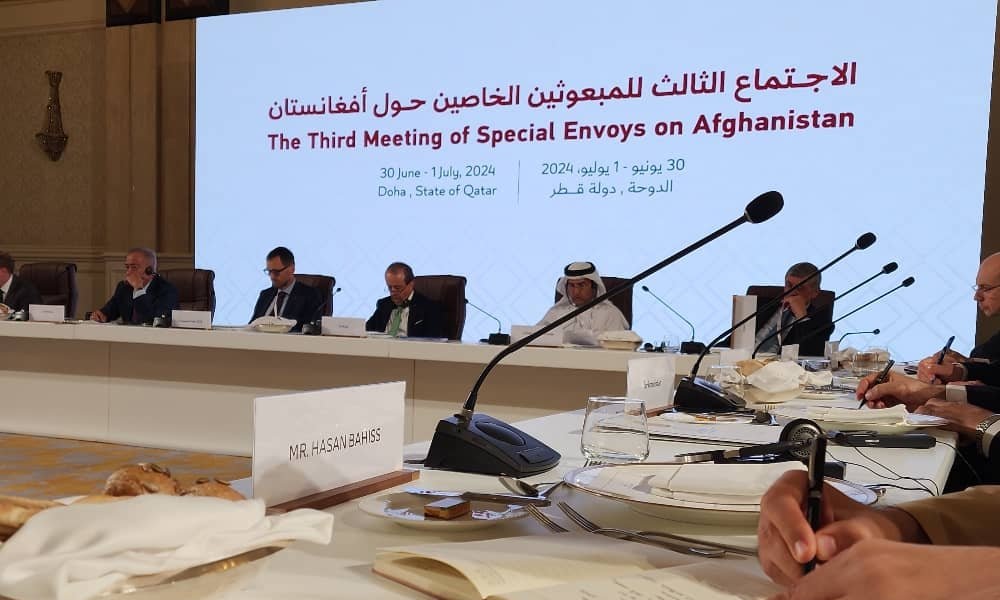
Mujahid sums up Doha meeting, says most countries willing to cooperate with Afghanistan
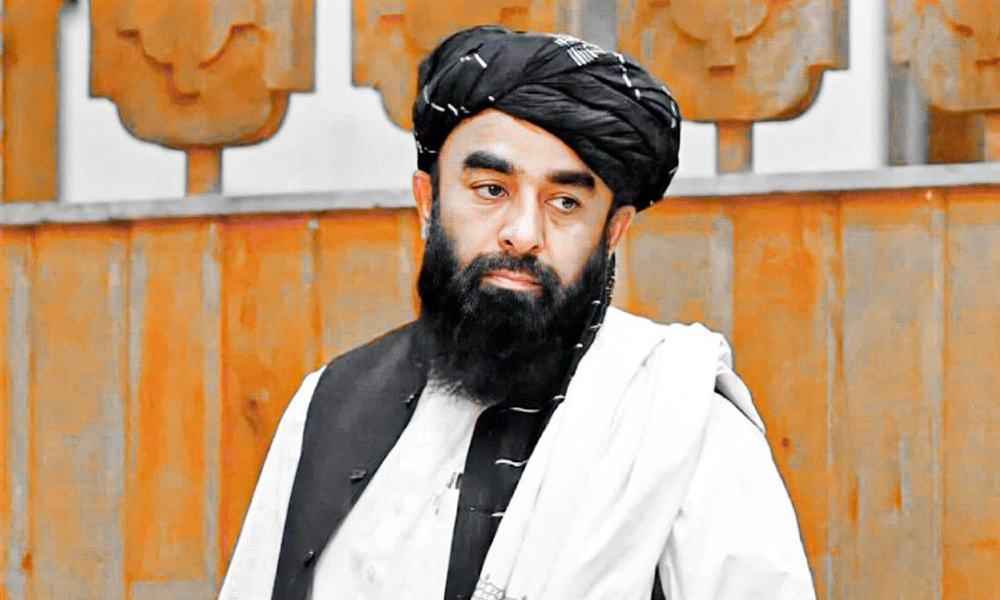
Latest News
IEA delegation meet envoys from regional countries on sidelines of Doha meeting
During the meetings, ways to enhance stability and peace in Afghanistan and support the aspirations of the Afghan people for a decent life were discussed, and the importance of the Doha process to achieve the desired progress was emphasized.

Zabiullah Mujahid, spokesman for Islamic Emirate of Afghanistan said in a series of posts on X that he had constructive meetings with special envoys of regional countries and discussed mutual relations and how to further strengthen ties.
Mujahid said he had a constructive meeting with the special representative of Pakistan Asif Durrani and Pakistan’s ambassador and diplomats to Doha.
“We thank them for their hospitality and hope for good and constructive relations for both countries,” Mujahid said.
Earlier, Mujahid said a quadrilateral meeting between Uzbekistan, Afghanistan, Pakistan and Qatar was held in Doha on Monday.
In this meeting, the Trans Afghanistan Railway Project, from Uzbekistan to Pakistan, was discussed.
All parties requested the early start and completion of this project, Mujahid said.
He also stated that he had met with Iranian special envoy Hassan Kazemi Qomi.
This meeting went well, said Mujahid, and that discussions had cenetered around the strengthening of ties and the overall importance of regional connectivity and cooperation.
The special envoy of Qatar’s minister of foreign affairs, Faisal bin Abdullah Al Hanzab meanwhile met separately with Special Representative of the UN Secretary-General for Afghanistan, Roza Otunbayeva; Special Representative of the President of the Republic of Uzbekistan for Afghanistan, Esmatullah Erkashev; and Special Envoy of Switzerland for Afghanistan Albert Grof.
During the meetings, ways to enhance stability and peace in Afghanistan and support the aspirations of the Afghan people for a decent life were discussed, and the importance of the Doha process to achieve the desired progress was emphasized.
Russian ambassador at the UN Vasily Nebenzya meanwhile said: “Taliban [IEA] is de facto authorities on Afghanistan, and we’ve been saying consistently that you have to recognize this fact and deal with them as such. Because whether you like it or not, but this movement is running the country now. And you cannot simply ignore that.”
Asked about how far Russia is from removing IEA from the sanctions list, ambassador Nebenzya said: “I cannot tell you a definite answer. But I heard some talks about it. But generally speaking, it is good that Taliban [IEA] was finally invited to Doha this time.”
Related stories:
UN keeps identity of Afghan activists at Doha meeting under wraps

Mujahid sums up Doha meeting, says most countries willing to cooperate with Afghanistan

Latest News
Mujahid sums up Doha meeting, says most countries willing to cooperate with Afghanistan
Speaking to Ariana News after the two-day meeting in the Qatari capital, Mujahid emphasized that the IEA was however adamant it would not allow any country to interfere in Afghanistan’s internal affairs.

Zabihullah Mujahid, the spokesman of the Islamic Emirate, told Ariana News that the IEA realized at the Doha meeting that most countries are willing to help and cooperate with Afghanistan.
Speaking to Ariana News after the two-day meeting in the Qatari capital, Mujahid emphasized that the IEA was however adamant it would not allow any country to interfere in Afghanistan’s internal affairs.
He also said “the patrolling of planes in the airspace of Afghanistan is a violation and we have condemned it, and we do not accept it for any reason.”
According to him, there are some internal matters that “people have the right to have demands from their system and government, but we do not want these demands to be made by other countries.”
He said that at the third meeting in Doha, two issues were discussed: how to help and cooperate with Afghanistan’s private sector, and identify the challenges; and secondly assess achievements and challenges in the fight against drugs.
“The issue of alternative livelihoods (to drugs) that is presented to the people is a very important issue because Afghans have suffered a lot in the fight against drugs and millions of dollars have been lost to the people and Afghans are poor people and there is unemployment in the society. It is too much, and for this purpose, an economic mechanism must be created.”
Meanwhile in a post on X, Mujahid said: “Afghans’ message reached all the participants.”
He added: “Afghanistan needs the cooperation of countries in the private sector, and the fight against drugs and creating alternative livelihoods; most countries discussed cooperation in this sector.”
The two-day UN-led Doha meeting on Afghanistan wrapped up on Monday.
This was the third meeting of its kind but the first that the Islamic Emirate attended.
Related Stories:
IEA calls on Doha meeting delegates to help resolve Afghanistan’s challenges
At Doha meeting, IEA delegation says policy differences are ‘natural’, urges lifting of sanctions
-

 Sport5 days ago
Sport5 days agoIndia hammer England to book T20 World Cup final with South Africa
-

 Latest News5 days ago
Latest News5 days agoAfghanistan’s mining ministry appoints firm to monitor Afg-Chin Oil and Gas Ltd
-
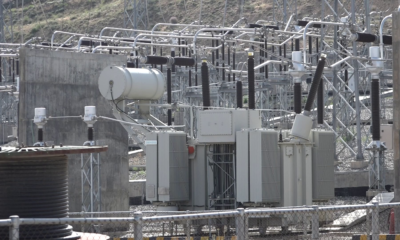
 Latest News4 days ago
Latest News4 days agoRemaining work on the Arghandi 500 kV substation project gets underway
-
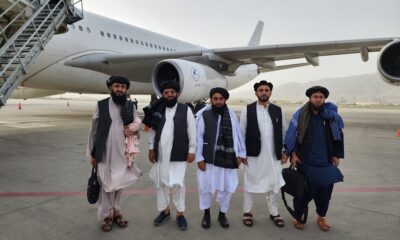
 Latest News3 days ago
Latest News3 days agoIEA delegation leaves Kabul for Qatar
-
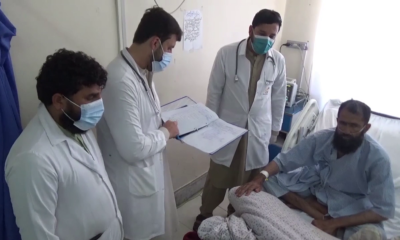
 Health4 days ago
Health4 days agoCases of malaria, cholera and dengue fever on the rise in Nangarhar
-
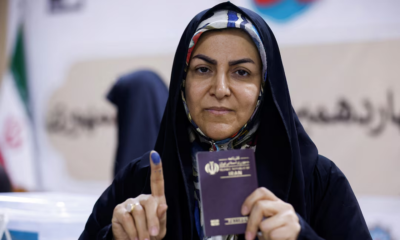
 Regional4 days ago
Regional4 days agoIran’s presidential election officially kicks off
-

 Business4 days ago
Business4 days agoUzbek investors keen to invest in coal mining in Afghanistan
-
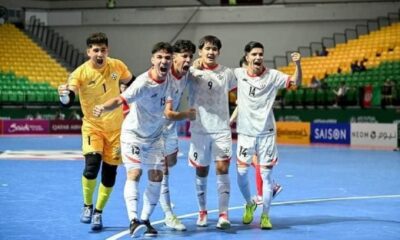
 Sport3 days ago
Sport3 days agoAfghanistan to face Morocco in futsal friendlies


